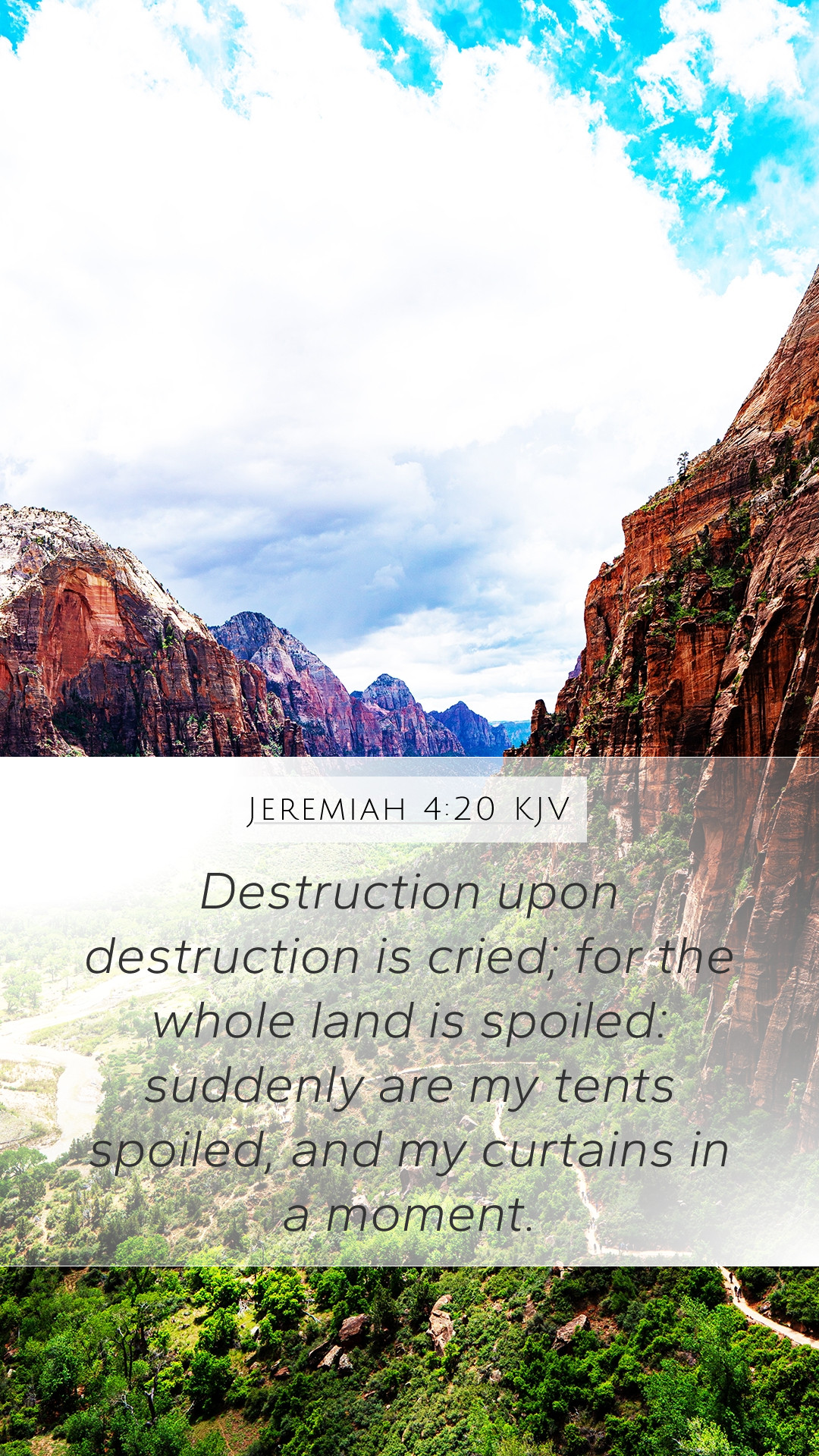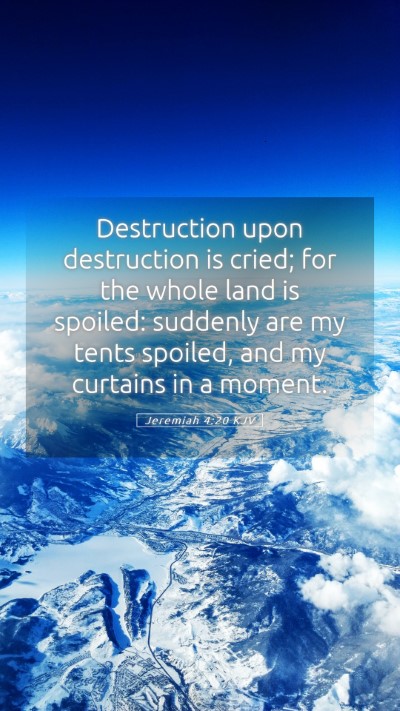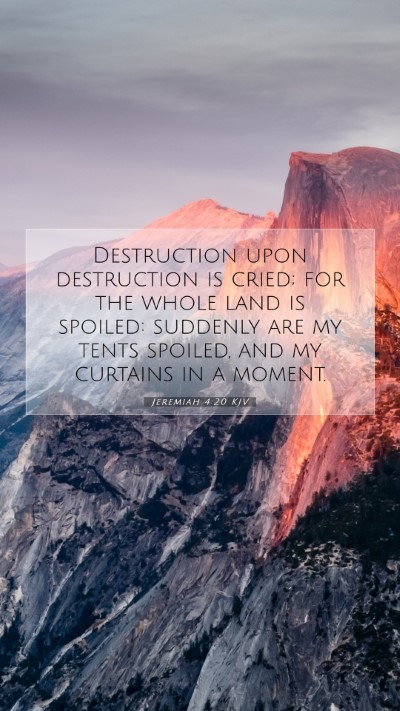Understanding Jeremiah 4:20: An In-Depth Bible Verse Commentary
Jeremiah 4:20 states: "Destruction upon destruction is cried; for the whole land is spoiled: suddenly are my tents spoiled, and my curtains in a moment."
Overview of Jeremiah 4:20
This verse captures the essence of despair and destruction faced by the people of Israel due to their disobedience to God. The strong imagery evokes the suddenness and completeness of the devastation that has come upon the land.
Interpretation of Key Phrases
- “Destruction upon destruction is cried”: This phrase highlights the overwhelming calamity affecting the nation. Destruction is not just anticipated but is an ongoing declaration that reflects a heightened sense of urgency and need for repentance.
- “the whole land is spoiled”: This indicates a complete ruin, signifying that not just isolated areas, but the entirety of the land suffers due to the people's sins.
- “my tents spoiled, and my curtains in a moment”: The reference to tents and curtains suggests a picture of home and family life being upended. It emphasizes how quickly this destruction has occurred, leaving communities in despair.
Biblical Exegesis
Commentators like Matthew Henry emphasize that Jeremiah is conveying a prophetic warning regarding impending judgments. The repetitive “destruction” serves to underscore the seriousness of Israel’s transgressions against divine law. Albert Barnes adds that such ruin results directly from a lack of obedience to God's commands, as the people engaged in idolatry and turned away from Him.
Adam Clarke contributes to this discussion by suggesting that the land’s spoilage offers a stark symbol of the spiritual wasteland that sin creates. Sin brings forth physical and spiritual desolation, as seen through the Israelite’s consequences.
Historical Context
This passage is situated in a period of great turmoil as Jeremiah proclaims God's pending judgment during a time when the Israelites are under threat from Babylonian forces. It reflects the larger theme within the Book of Jeremiah which emphasizes prophetic warnings alongside calls for repentance.
Application and Relevance
Understanding Scripture like Jeremiah 4:20 encourages readers to reflect on how actions lead to consequences, both individually and collectively. The suddenness of ruin depicted can serve as a profound reminder to remain vigilant in faith and obedience.
How to Interpret Bible Verses in Context
When approaching difficult Bible passages, it is crucial to consider both the historical context and the overarching narrative of Scripture. Study insights from figures like Henry, Barnes, and Clarke can provide a breadth of understanding that respects the integrity of the original text.
Cross References
- Isaiah 24:3-12: A parallel prophecy discussing the devastation of the land due to sin.
- Ezekiel 33:12-13: A warning of judgment for the righteous and the wicked which supports the theme of accountability.
- Lamentations 1:1-2: A lamentation of the ruin of Zion, echoing the sentiments found in Jeremiah.
Conclusion
Jeremiah 4:20 offers a sobering reflection on the consequences of turning away from God. Through Bible verse meanings and careful scripture analysis, believers can glean valuable lessons on faith, accountability, and the importance of remaining steadfast in their relationship with the Lord.


